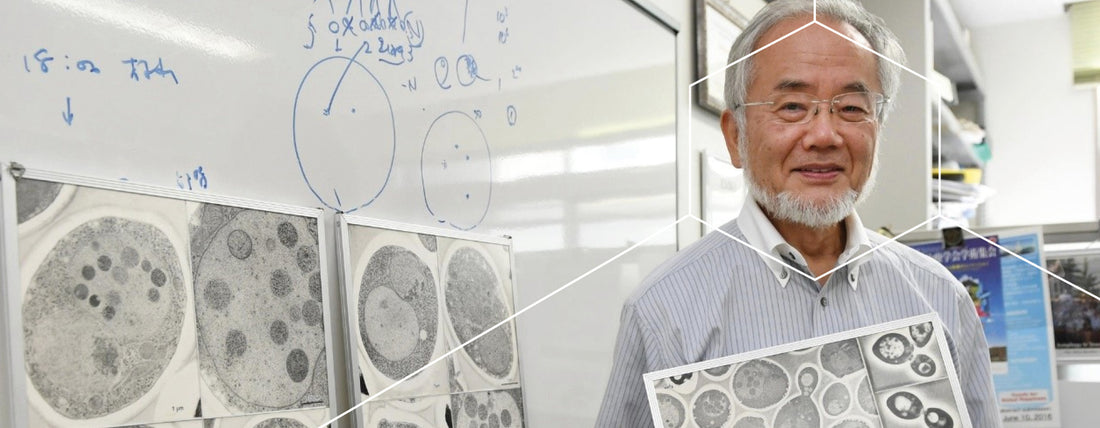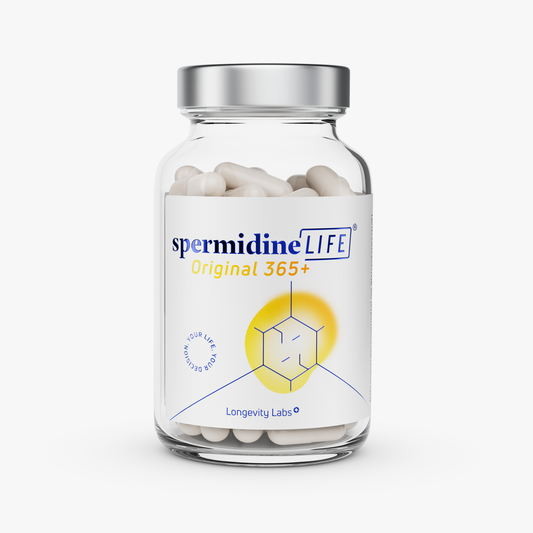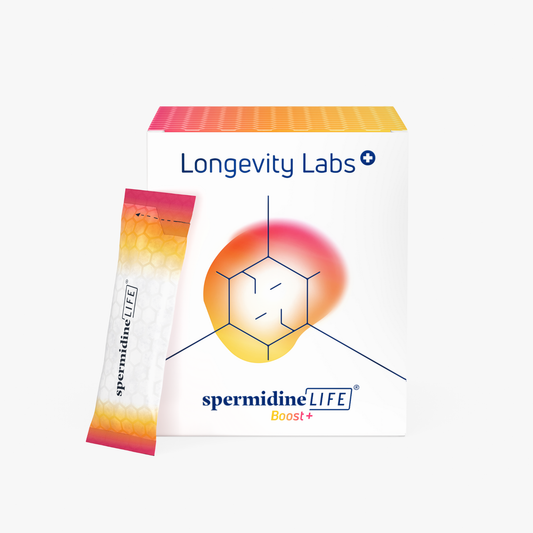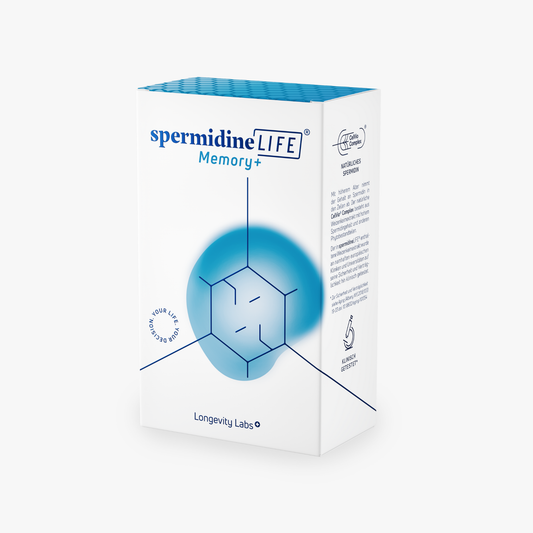
Nobel Prize for Research on the Cellular Recycling Program
Science, TLL LongevityLabsAs always, this year’s Nobel Prizes were announced in October. In the natural science categories, prizes are awarded for scientific achievements of great importance to humanity. As is so often the case, these discoveries and the people behind them are unfortunately forgotten too quickly in the media.
Therefore, we would like to introduce Yoshinori Ohsumi. The Japanese cell biologist was awarded the Nobel Prize for Physiology or Medicine in 2016 for his contributions to the broader understanding of autophagy.
Ohsumi was the first scientist able to prove how cells activate the evolutionary process of autophagy when they “starve”. Following a calorie restriction of 14 hours or more, the so-called autophagic process is initiated in which damaged cell organelles are covered by a membrane and “digested”. As a result, aged cells not only regain their full functional capacity, “self-consumption” also produces additional energy available to the organism. Thus, aged cells at the end of their life cycle, can delay the imminent cell death through this “recycling program” by restoring their functionality.
These findings have found their way into aging research in particular and significantly contributed to a completely new understanding of the human aging processes.
“I am deeply moved by the interest that has been shown in autophagy research, which for me has represented an incredible journey over the last 28 years. It’s my greatest pleasure and honor as a basic scientist if our work was able to trigger a development in our understanding of life. I await the continued development of the field over the years to come with great anticipation.”
Autophagy and its role in the aging processes
Autophagy plays an important role in all organisms. It ensures a sensitive, balanced equilibrium between formation and degradation of proteins in a given nutrient supply.
During autophagy, harmful substances are digested, such as clogged proteins in nerve cells thought to be responsible for Alzheimer’s or dementia. When autophagy can no longer be activated, the cell ages and apoptosis – cell death – occurs.
Based on these findings, mouse studies have shown that animals which have to survive longer periods without food age more slowly and healthily than those that are fed more abundantly. This has been demonstrated very clearly in the neuron and brain area.
Short biography
Yoshinori Ohsumi was born in 1945 in Fukuoka (Japan). He had originally started studying chemistry, but soon switched to molecular biology. He went to Rockefeller University in New York, and later conducted research at the University of Tokyo. In 1996 he became professor at the National Institute for Basic Biology in Okazaki and in 200
Most important publications
Takeshige, K., Baba, M., Tsuboi, S., Noda, T. and Ohsumi, Y. (1992). Autophagy in yeast demonstrated with proteinase-deficient mutants and conditions for its induction. Journal of Cell Biology 119, 301-311
Tsukada, M. and Ohsumi, Y. (1993). Isolation and characterization of autophagy-defective mutants of Saccharomyces cervisiae. FEBS Letters 333, 169-174
Mizushima, N., Noda, T., Yoshimori, T., Tanaka, Y., Ishii, T., George, M.D., Klionsky, D.J., Ohsumi, M. and Ohsumi, Y. (1998). A protein conjugation system essential for autophagy. Nature 395, 395-398
Ichimura, Y., Kirisako T., Takao, T., Satomi, Y., Shimonishi, Y., Ishihara, N., Mizushima, N., Tanida, I., Kominami, E., Ohsumi, M., Noda, T. and Ohsumi, Y. (2000). A ubiquitin-like system mediates protein lipidation. Nature, 408, 488-492
Nico Teuschler
Research






